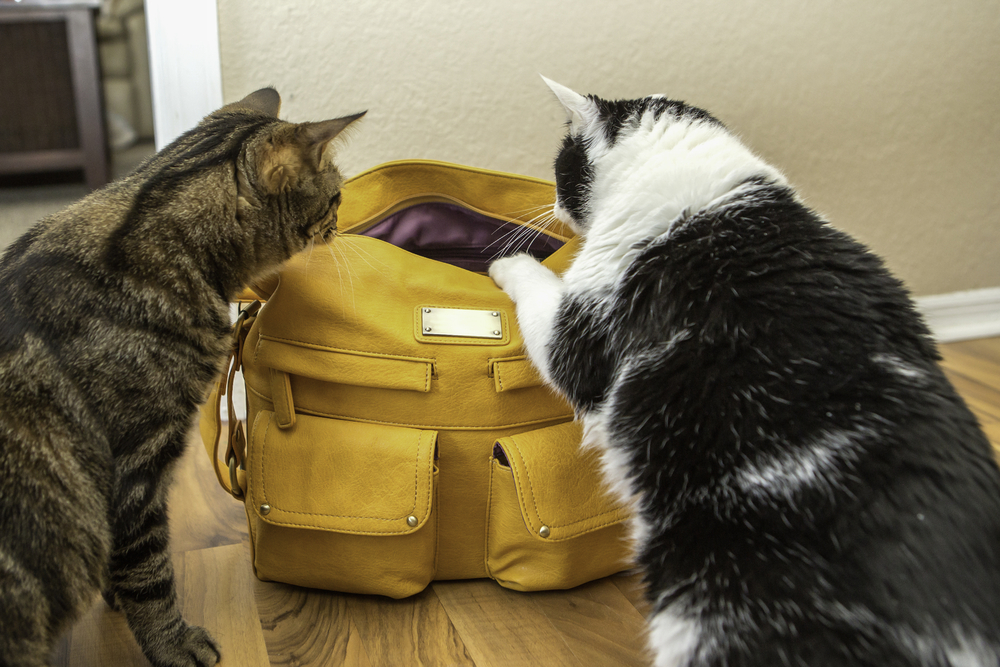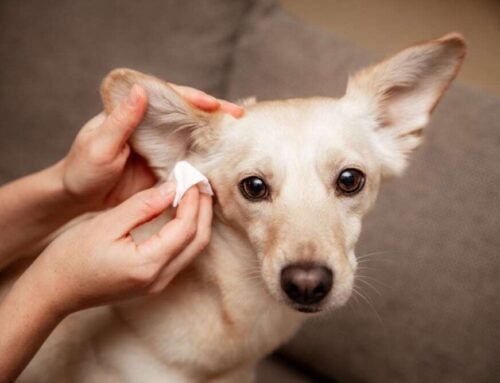A curious cat or mischievous mutt can quickly get themselves into trouble if they lick, chew, drink, inhale, walk on, or rub up against the wrong thing. Since pets can’t read warning labels and have no idea that a rattling pill bottle, intriguing plant, or yummy snack could make them extremely sick, or perhaps kill them, pet owners are responsible for protecting their furry friends from toxic substances. The Pet Poison Helpline provides a comprehensive list of pet toxins that is a great reference, but our Animal Medical Hospital of Naples team also wants to highlight some of the most common toxins.
#1: Medication and pets
Ingestion of over-the-counter and prescription human medications constituted 36.9% of the calls made to the ASPCA Animal Poison Control Center (APCC), according to their 2020 top ten pet toxins list. Non-steroidal anti-inflammatories, acetaminophen, antidepressants, sleep aids, and birth control, ADD/ADHD, anti-anxiety, blood pressure, and thyroid medications were among the most commonly reported medications. The effects can range from vomiting or diarrhea to organ failure, seizures, or changes in blood pressure, heart rate, or body temperature, depending on the medication and dose. Pet medications, which constituted 9.3% of all ASPCA APCC calls, can also pose a risk when a mischievous pet decides that the tasty chewable tablets would make a great treat and overdoses, or if one pet gulps down a dropped pill-laden meatball meant for another pet.
#2: Toxic foods and pets
A variety of food items may be tasty for you, but toxic for your furry friends. Watch out for:
- Grapes and raisins — These yummy fruits can cause life-threatening kidney failure in pets who ingest only a small amount.
- Chocolate — Death by chocolate is a real concern for pets, not only the name of a tasty dessert. Vomiting, diarrhea, heart rhythm changes, or seizures can befall pets who indulge their chocolate cravings.
- Xylitol — This sugar substitute can be found in sugar-free gum, baked goods, peanut butter, toothpaste, or other products, and can lead to life-threatening low blood sugar or liver failure.
- Alcohol — You can feel free to indulge in adult beverages at your discretion, but your pet should stick to water. Pets who decide to sneak some alcohol may experience vomiting, diarrhea, nervous system depression, or death.
- Macadamia nuts — These tasty nuts are great in cookies, but cause tremors, vomiting, weakness, or depression in pets.
- Onions and garlic — Red blood cell damage or digestive tract upset may occur when a pet snacks on foods containing onions or garlic.
#3: Outdoor toxins and pets
A pet can quickly get themselves into trouble with these yard or garage toxins:
- Bufo toads — These large toads invading Florida secrete a toxin from their skin that can cause seizures, profuse drooling, heart abnormalities, collapse, or death.
- Mouse or rat poison — Ingesting these poisons can interfere with blood clotting, or cause neurologic problems, elevated blood calcium and then kidney failure, or gastrointestinal signs, depending on the toxin type.
- Antifreeze — Once ingested, this deceptively sweet liquid can turn deadly by causing kidney failure.
- Plants — Lilies, oleander, sago palm, tulips, azaleas, castor beans, amaryllis, lantana, yew, and dumb cane may make your yard beautiful, but can harm your furry friends. The ASPCA’s list of toxic and non-toxic plants is a great resource when planning your landscaping.
- Garden products — Some fertilizers, pesticides, herbicides, or mulches may be toxic to pets.
Avoid pet poisonings

To help prevent toxin mishaps, keep these tips in mind:
- Keep all potential toxins in a secured cabinet, on a high shelf, or in other pet-proof locations.
- Read the labels of foods and products to look for hidden toxic ingredients, such as xylitol, and heed all safety warnings.
- Pay attention to where the family sets down backpacks, purses, or bags, because they are an easily overlooked pet toxin source. This is especially important when you have guests who may not know your pet has a penchant for bag browsing.
- Teach your pet a “leave it” command to keep them from devouring a dropped pill or toxic food before you can pick it up.
If you think your pet may have come in contact with a toxic substance, immediately contact Animal Medical Hospital of Naples, ASPCA APCC, or Pet Poison Helpline. Do not give milk or bread to dilute the toxin, induce vomiting, or otherwise attempt to treat your pet at home, unless instructed to do so by a veterinarian.
Whether you woke up to discover that your pet’s midnight partying involved a toxic substance, your dog snatched an oatmeal raisin cookie from your toddler, or your cat frolicked in the neighbor’s lilies, give us a call. Our team is dedicated to serving you and your pet with compassion and understanding.






Leave A Comment